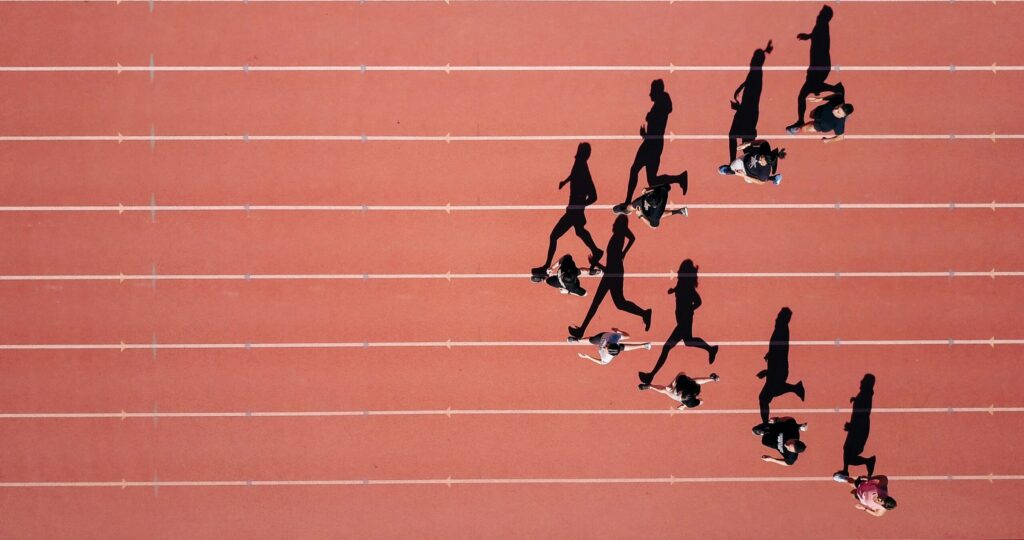Elevating Your Game Through Mindfulness Practices in Sports

Introduction: The Unseen Edge
Have you ever watched an athlete perform seemingly impossible feats, and wondered what gives them that extra edge? Is it sheer talent? Years of practice? Or could it be something more intangible? In a world where every millisecond counts and every point matters, the answer increasingly leans towards a less conventional territory: mindfulness. Integrating mindfulness practices into sports not only enhances performance but also fosters a deeper connection to the game itself.
The Rise of Mindfulness in Sports
Mindfulness, once regarded as a niche practice reserved for yogis and meditation enthusiasts, has made significant inroads into the realm of competitive sports. It’s fascinating to think that some of the top athletes in the world, from tennis star Novak Djokovic to NBA legend Kobe Bryant, have attributed part of their success to mindfulness techniques. I remember watching a documentary featuring Bryant where he spoke about the importance of being present—not just in the game, but in life. It struck me that this concept, so simple yet profound, could change how we view performance.
What is Mindfulness?
Before diving deeper, let’s clarify what mindfulness really is. At its core, mindfulness is the practice of being fully present and engaged in the moment, without judgment. It encourages individuals to observe their thoughts, feelings, and bodily sensations with a degree of detachment. This may sound like something one would find in a self-help book, yet its application in sports can yield remarkable results.
The Benefits of Mindfulness in Athletic Performance
Mindfulness offers a plethora of benefits that can elevate an athlete’s game. Here are some key advantages:
- Enhanced Focus: Athletes often battle distractions, whether they stem from the crowd, personal issues, or the pressure of competition. Mindfulness helps athletes hone their attention, allowing them to concentrate on the task at hand.
- Stress Reduction: The competitive nature of sports can lead to high levels of stress and anxiety. Mindfulness practices can alleviate these feelings, promoting a calmer mindset.
- Improved Emotional Regulation: Emotions can run high during competitions. Mindfulness teaches athletes to manage their emotions, leading to more controlled performances.
- Injury Recovery: Staying present can also aid in the mental aspect of recovery from injuries, as mindfulness fosters a positive mindset and resilience.
Mindfulness Techniques for Athletes
So, how can athletes incorporate mindfulness into their routines? Here are several practical techniques that can be easily adopted:
1. Breathing Exercises
Breathing is the foundation of mindfulness. Simple deep-breathing exercises can ground athletes, especially during high-pressure situations. For instance, taking a few moments to focus solely on one’s breath—inhale deeply through the nose, hold for a count, and exhale slowly—can provide clarity and calmness. I once tried this method before a big match (full disclosure: I was more nervous than a cat in a room full of rocking chairs). It truly made a difference in how I approached the game.
2. Visualization
Visualization is a technique where athletes imagine themselves successfully performing their sport. This mental rehearsal can enhance confidence and performance. Some studies suggest that visualizing successful outcomes can lead to actual improvements in performance, almost as if the mind is rehearsing the body’s movements. A famous quote from Olympic swimmer Michael Phelps resonates here: “I visualize my future, and I make it happen.”
3. Body Scan Meditation
This practice involves focusing attention on different parts of the body, helping athletes develop awareness of their physical state. A body scan can be particularly useful before competition, as it allows athletes to identify any tension they might be holding and consciously release it. I remember being skeptical about this at first, thinking, “Why would I need to check in with my toes?” But, surprisingly, it can be enlightening to realize where stress is stored.
Real-Life Examples of Mindfulness in Action
To truly appreciate the impact of mindfulness in sports, let’s look at a few athletes who have embraced these practices with remarkable success.
Novak Djokovic
Novak Djokovic is a prime example of an athlete who harnesses mindfulness. The Serbian tennis star has openly discussed how meditation and mindfulness practices have transformed his game. He credits these techniques for helping him maintain focus during high-stakes matches. Djokovic’s ability to stay present has led to his impressive career, including numerous Grand Slam titles. It’s interesting to think about how a few moments of stillness can lead to such dynamic results on the court.
Michael Jordan
Speaking of legends, Michael Jordan’s approach to the game was not just physical. He often utilized visualization techniques to mentally prepare for games, picturing every possible scenario. His legendary “flu game” during the 1997 NBA Finals is a testament to the power of mental resilience. Jordan demonstrated that sometimes, it’s not just about the physical; it’s about how one’s mind can influence performance.
Rugby and Mindfulness
Interestingly, mindfulness has found its way into team sports as well. The New Zealand rugby team, the All Blacks, has incorporated mindfulness practices into their training regimen. They focus on mental skills that enhance communication, cohesion, and overall performance. There’s something poetic about a sport as physically demanding as rugby embracing the art of mental clarity. Talk about a balanced approach!
Challenges in Adopting Mindfulness
Despite the clear benefits, integrating mindfulness into sports isn’t without its challenges. Many athletes, particularly those new to the concept, might find it difficult to quiet their minds. There’s a funny irony in trying to focus on nothing, right? It can be akin to trying to avoid thinking about a pink elephant. Moreover, the fast-paced nature of competitive sports often leaves little room for introspection.
Combatting Resistance
Resistance to mindfulness might also stem from misconceptions. Some athletes may believe that mindfulness equates to weakness or a lack of competitive edge. In reality, it’s quite the opposite. Mindfulness can be a powerful tool for enhancing performance and resilience. However, overcoming these mental barriers requires time and commitment.
Creating a Mindfulness Practice
Establishing a mindfulness practice doesn’t need to be a daunting task. Here are some simple steps athletes can take to integrate mindfulness into their daily routines:
1. Start Small
Begin with just a few minutes of mindfulness practice each day. Gradually increase the time as comfort grows. Even a two-minute focused breathing session can make a difference.
2. Consistency is Key
Consistency is crucial. Integrating mindfulness into daily training can help athletes create a habit. It’s all about forming a routine that feels natural.
3. Find What Works
Different techniques resonate with different people. Whether it’s meditation, yoga, or simply focused breathing, finding the right approach is essential to maintaining motivation.
Mindfulness Beyond Sports
The benefits of mindfulness extend far beyond the playing field. Athletes who practice mindfulness often find that it seeps into other areas of their lives, enhancing relationships, work performance, and overall well-being. Personally, I’ve found that the moments spent practicing mindfulness have helped me navigate daily stressors with a bit more grace. It’s a little like finding a secret weapon in life’s game.
The Future of Mindfulness in Sports
As the landscape of sports continues to evolve, the role of mindfulness is likely to expand. Coaches, trainers, and sports organizations are beginning to recognize the significance of mental training alongside physical preparation. In fact, many universities are now incorporating mindfulness programs into their athletic departments. The potential for better performance and improved mental health is too great to ignore.
Conclusion: A Game-Changer
Mindfulness practices are more than just a trend; they represent a shift in how athletes approach their craft. By prioritizing mental well-being alongside physical training, athletes can unlock new levels of performance. As we reflect on the stories of sports legends and everyday competitors alike, one thing becomes clear: the mind is a powerful ally in the pursuit of greatness. So, whether you’re shooting hoops, running laps, or simply navigating life’s hurdles, consider embracing mindfulness. You might just find it to be the edge you’ve been searching for.





